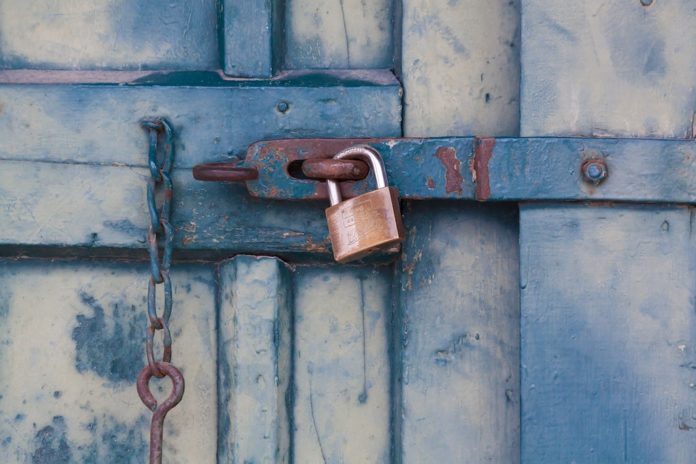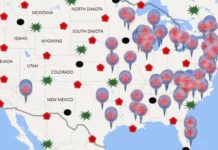I like the idea of bugging out as much as the next guy, testing my mettle against zombies and a world without a power grid.
The reality is that most of us, by far, will be better off in an SHTF scenario staying right where we are — at home. The reasons to bug in far outweigh most other options. Over the years I’ve given this a lot of thought because like a lot of you, I, too, was swept up in all the glamour of planning to bug out. It’s the stuff prepper novels are made of but it’s what I call over-rated prepper advice!
The bug out bag — What should it contain? Let’s talk about that for a couple of years. I have nothing against a well-planned 72-hour kit, but once put together, move on already!
The bug out vehicle –Which make? Which model? How can I customize it and convince my wife to let me spend serious money on a side project when I already have too much on my plate?
The bug out location — Where will we go and more importantly, how will we be able to afford what is a second home by any other name?
The bug out PLAN — Put all the pieces together and revel in the tactics, the strategies, the finest details and then go over everything in forum discussions that last for years.
All that aside, the cold, hard truth is that home will almost always be the safest place to be and guys like me who work some 15-20 miles from home base would be better off having a couple of simple plans for getting there. Reasons to bug in are smart and worth considering in spite of all the bug-out information on the web.
Off the top of my head, there are 10 reasons why your home is the best place to hunker down if you’re wondering, should I bug out. Spend your time figuring out non-crazy ways to fortify it and getting to know as many of your neighbors and fellow citizens as possible. In a crunch, they’ll end up being your actual survival group; like it or not.
So, in no particular order, here are the top 10 reasons to bug in and why it will almost always be the best course of action.
1.Far less risk to you and your loved ones when you plan on bugging in
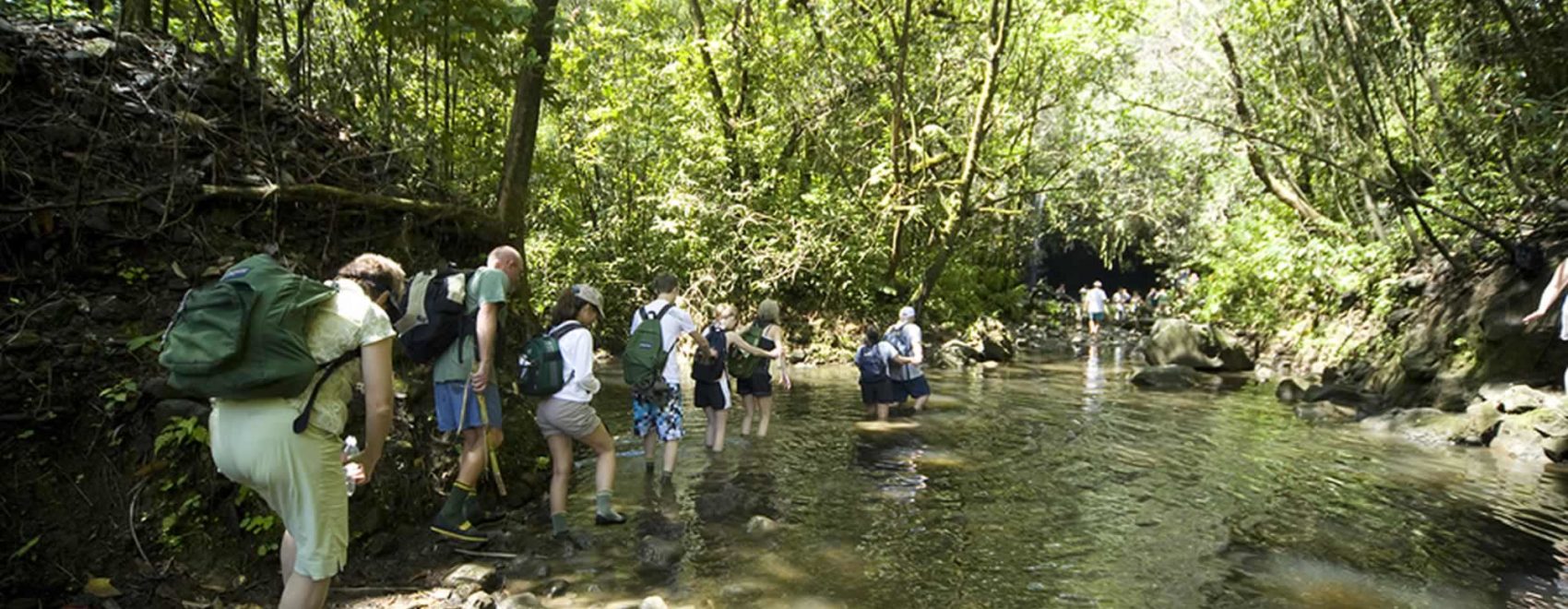

When you think about it, hitting the road in a bug out situation is fraught with extreme dangers to your family members. You and I might be able to hoist a 50-pound pack, strap on a firearm or two, and then hoof it to a remote, safer location. I guarantee you, a wife, kids, grandparents won’t be able to do that and what, then, is your choice? Will you leave them behind?
It’s much easier to have a comprehensive plan to gather everyone together in a single, safe location which is probably going to be your home. This article about low-tech ways to protect your home may be helpful to secure your home and property.
2. You know the terrain
When Hurricane Harvey hit our town, all of a sudden everyone was interested in the sea level of their home, their distance from the nearest lake and river, and whether or not the bridges around us were covered with water.
It doesn’t take long for a curious person with some time on their hands to learn all that and more, and that’s what needs to be done way before a real crisis hits.
Put me in a locale that I’ve only visited on weekends and then challenge me to get there with my family, in a crisis, with adrenaline is pumping, and I might be able to do it. There’s also a good chance that in all the confusion we might make a wrong turn or run into an unforeseen challenge, such as roadblocks, washed-out side roads, and the like.
Related: How to Prepare For Hurricane Season
3. You know the people
You understand how vital it is to know as many people as possible in your neighborhood and the surrounding areas. Now, most of my neighbors are a lot like me — hard working people who just want to do their own thing and be left alone. I respect that.


Andrew, a few streets away, may have a hobby of collecting old pinball machines and his kids are a lot younger than mine, but he’s also one of the most industrious guys I know. He has a way of coming up with creative solutions to problems that makes me think he’d be ideal as a survival-group buddy. Jacob, on the other hand, is my next door neighbor and as far as I can tell, his only interests are going to and from work every day and watching TV. That’s good information to file away in my head, along with Catie, the elderly widow 3 doors down who is a hoarder and emotionally and mentally scarred by decades of abuse. My daughter checks in on her from time to time.
I also know who doesn’t belong in this neighborhood and that is just as important as knowing who does. It makes it easier to identify potential threats, an excellent reason to bug in. Away from my home base, I’m not so sure who belongs and who doesn’t.
In a survival situation, you’ll have hundreds and hundreds of new and very difficult decisions to make and most of them will, in one way or another, involve the people around you. At your home base, you’re in the perfect situation to get nosy and learn all you can about them now. If you have a bug out location in mind, how well do you know those people and just as important, how well do they know you?
4. You’re more likely to have common ground with neighbors
When it comes to your kids, are you just a little paranoid about who you can trust? I am. My wife labeled me The Paranoid Dad a decade ago and nothing has happened to make me behave otherwise. In my neighborhood, I’ve noticed that most parents, by far, are protective of their kids — we have that in common.
And it’s not just our parenting style that is similar but our general view of the world, our high regard for our constitutional rights and how we value family. Sure, there are plenty of differences when it comes to political and social issues, but there’s a foundation, a common ground, that I’m not sure I would share with random, unknown people if we bugged out.
Related: Beginner Guide to Bugging In
5. You already know multiple routes for bugging in
I know my neighborhood. I’ve driven the roads hundreds of times and have made a game of using as many different routes as possible to get from Point A to Point B. I know this area. In a pinch, I could figure out some back ways to retrieve one of the kids if they were at a friend’s house or my wife from one of her hair appointments.
Make a game out of finding different routes home. Use my strategies in this article about utilizing Google Maps to plan an evacuation. My wife even makes a point sometimes to get lost on purpose and then figuring out how to get home. It’s a good idea and so far, she’s managed to make her way home every time. I’m proud of her.
6. You know how to get in and out
This advantage is similar to the previous one but has more to do with knowing multiple ways to get back in your town and neighborhood and then out, if necessary, and not using just paved roads.
In a pinch, we could load up our bikes and take bike trails we’ve been traveling for the past 4 years. I’ve thought of packing my bike in my work truck so I’d have an alternate method of transportation but I haven’t done that, yet.
You probably have similar information stored in your own brain and if not, start checking out all the different ways you could get back in and then out if need be. Also, with knowledge of terrain, entrances, exits, and infrastructure, you’ll have knowledge for defending your ground if it becomes necessary.
7. It’s easier and cheaper to maintain one home site
My main beef with all the know-it-all survival gurus who claim that a second home, aka a bug out location, is an absolute necessity is the cost involved. For someone like me, a guy with a well-paying job but also with the expenses that come with raising a family and owning a home, finding the money to buy property in an outlying area and then equipping it with not only another house but preps as well isn’t very likely.
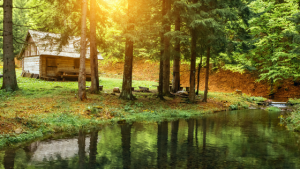

And, it’s not helpful at all to tell me I’m dooming myself and my family to horrible deaths if we don’t have that rural home. Years ago my in-laws owned a beautiful cabin a couple of hours north of Phoenix. Nestled in the pines, it was a darn good bug out location, but when the economy went belly-up, they had no choice but to sell. Along with the mortgage, they had to maintain some county fees for roads, property taxes, and utilities. It all adds up.
Simply put, it’s just a whole lot cheaper to assess your home right now wherever it is and figure out how to best make it defensible and get it fully prepped rather than dividing your time, attention and money between 2 different properties.
Related: How to Plan The Prefect Bug-Out Location
8. My family knows where to come
In a crisis, I want every one of them to know how to get home. Home is our #1 meet-up place, no matter what happens. I don’t want them wondering, should I go home or to our hidey-hole cabin 95 miles away? Is Dad coming home or heading there? I’ve already told my wife that if all hell breaks loose, I WILL find a way to get home. It may take a few days, but I’ll get there. With only one single survival location, our home, there’s no wondering where to go or where everyone is.
9. You know business owners, churches, and community leaders
I have a network of people in our lives that we know we can rely on for good service, good products, advice, and support. After the major flooding from Hurricane Harvey, these were the people who immediately volunteered their services, their property, their time, their money, and their connections to help out.
In many cases, they were helping strangers but in others, they knew the names and faces of their clients, customers, and church members. A support system like this is invaluable in a crisis.
10. It’s where all your stuff is
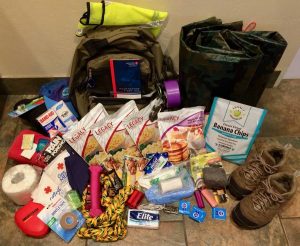

Speaking of Harvey, right before that storm hit, my wife and I quickly pulled out necessary supplies and gear we thought we might need to get us through everything from a boil notice to a long-term power outage. It was all there — the Mini Sawyer water filters, the solar lanterns and flashlights, our water storage barrels and filled WaterBricks, the Sun Oven, and a lot more.
We’ve been prepping for over 9 years now and have accumulated a lot of stuff including a solid 72-hour kit. Our preps are pretty well organized in closets, a spare room, and an attic. We know what we have, where it is, and how to use it. We are also right here on the property to protect what is ours if it ever came to that.
That isn’t the case for a bug out location. Even with a security system and watchful neighbors, if you have them, it’s all too easy to raid and loot a property that appears to be vacant. Some will argue, “You’re supposed to LIVE at your bug out location!” and that works for some people but not most of us. One of the major concerns of people who own these secondary locations is how to protect the property and all their belongings. There’s no easy answer to that.
What other reasons can you think of for planning to bug in rather than spending most of your time planning to bug out? I just don’t think that is the wisest course of action unless your home has become extremely unsafe.



